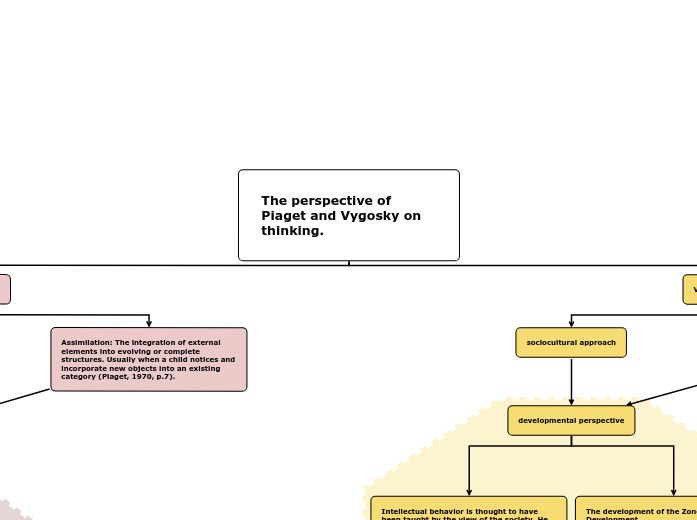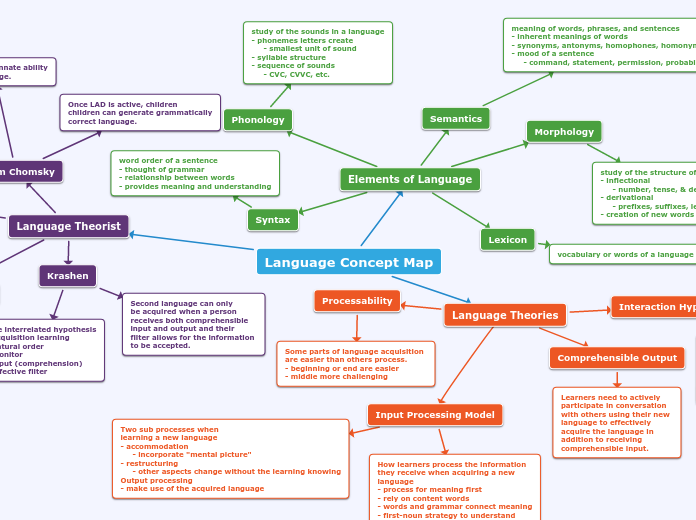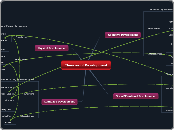The perspective of Piaget and Vygosky on thinking.
Vygosky
language vs thoughts
sociocultural approach
developmental perspective
The development of the Zone of Proximal Development
As a child already has ability to learn naturally without external forces. It takes it to the next level which is learning just beyond their natural abilities and a range of knowledge they can handle which is not a fixed point. It then shows the growth and progress of the child's development (Vygotsky, 1980, pp. 22-27).
Intellectual behavior is thought to have been taught by the view of the society. He believed that children learn by social interactions they encounter.
The development of a child's behavior is socially mediated by the society interaction.
Piaget
Assimilation: The integration of external elements into evolving or complete structures. Usually when a child notices and incorporate new objects into an existing category (Piaget, 1970, p.7).
Accommodation: This is a process of existing schemes or mental frameworks to accommodate new information. This is related to modifying an understanding to fit the new experience (Piaget, 1954).
Constructive approach (Adaption)
individualistic thinking
Self-directed thinking: It is believed that a child is their own person; and they influence their own behavior with their own thoughts as that are believed to not have any external forces. Therefore, children learn by manipulating objects, this allows them to achieve abstract thinking (Piaget, 1964, pp,176-186).
4 stages of cognitive development
Sensation, Preparation, Concrete operation, Formal operational.









